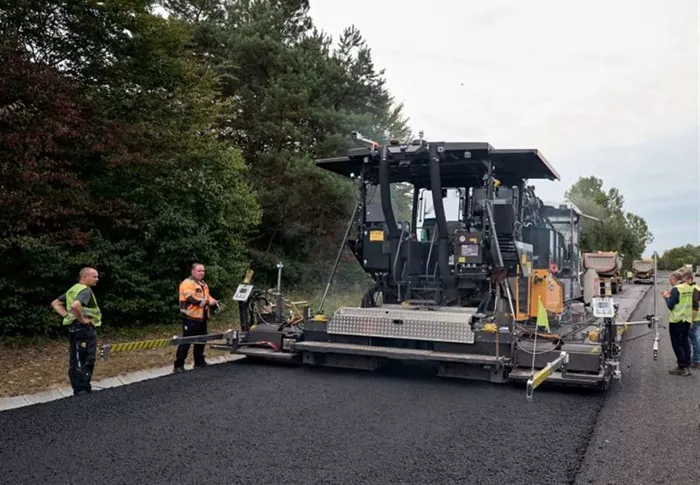Austrian construction giant Strabag has successfully trialed a pioneering autonomous asphalt paving system on a stretch of the A9 motorway near Graz. The project, part of the European Union-wide InfraROB research initiative, aims to enhance safety and efficiency in road construction.
The test took place on a segment of the A9 motorway that borders Slovenia, where Strabag is currently renovating. Equipped with advanced object recognition sensors and satellite navigation (GNSS), the asphalt paver utilizes a unique module that interfaces directly with the machine’s CAN bus system. This allows for the seamless transfer of precise paving instructions, ensuring accurate asphalt placement.
Strabag has also integrated a specialized attachment into the paver that embeds sensor-equipped fiber optic cables into the asphalt surface. These sensors provide real-time data on temperature and movement, helping monitor the load on the asphalt. The paver autonomously completed a 180-meter section, coordinated by Strabag’s team from Graz, in collaboration with partners from Germany’s TH Köln University of Applied Sciences, Darmstadt Technical University, and the machine control firm MOBA.
Sebastian Czaja, head of Process Stability in Road Construction at Strabag’s TPA division, highlighted the safety benefits of this technology: “In the future, paving staff will increasingly take on supervisory roles, operating from a safer distance, reducing their exposure to traffic, vapors, and aerosols.”
The test also incorporated other robotics, including mobile cone robots coordinated by drones to segment the work area. Next, Strabag plans to deploy small, autonomous paint robots to mark the trial section at the end of October.
As Strabag continues to push the boundaries of autonomous road construction, the company anticipates that these advancements will significantly improve safety, cost-efficiency, and operational effectiveness in the industry.
Related topics:
- California’s Hydrogen-Powered Commuter Train Set to Roll Out, Marking a Milestone in Zero-Emission Transit
- Republic Services Orders 100 More McNeilus Electric Refuse Trucks to Expand Eco-Friendly Fleet
- Growing Concerns Over AdBlue in Heavy Transport and Lifting Sectors

